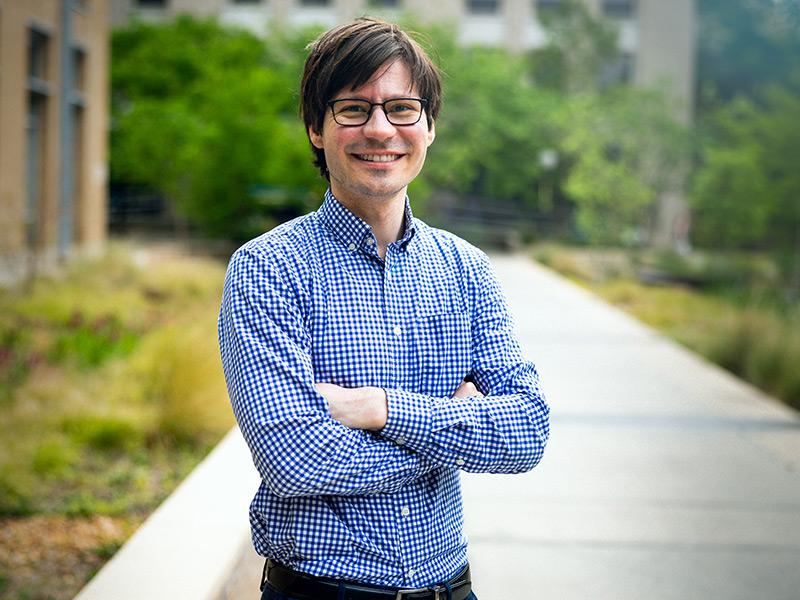Materials science professor at Tulane wins CAREER award from National Science Foundation
Matthew Montemore, the Robert and Gayle Longmire Early Career Professor in Chemical Engineering at Tulane University, has received the CAREER award, a prestigious recognition that the National Science Foundation gives to early-career researchers. The award comes with more than $520,000 of funding for Montemore’s research.
Montemore received the award to study single-atom alloys, materials that consist mainly of one material and a single atom of another. An alloy is a metal made of multiple elements rather than a single one. Some well-known examples are stainless steel, made of iron and carbon, and bronze, made of copper and tin. Alloys have different properties than their components, and they can be used for a multitude of things, from cookware to chemical reactions.
“We always think about what’s happening on the surface of these materials, because that’s where the reactions happen,” said Montemore. Creating alloys where one material is on the surface of another, like single-atom alloys, avoids wasting expensive materials that don’t react when they are mixed throughout the other materials, like in more traditional alloys.
Montemore studies computational materials science, meaning he uses computer models to develop new materials and see how they behave. He said it’s easier to get a sense of what’s happening at the atomic and subatomic levels when it’s modeled computationally versus experimentally.
“If we can first design it computationally, that’s usually faster to screen a number of things, then go to the experimentalists,” Montemore said. He works closely with experimentalists who use his models to fabricate the materials and observe how they behave in the real world. He described the process of his research as going back and forth with his experimental collaborators, giving them computational models and then taking what they find experimentally and doing more detailed characterization of the most promising materials.
This collaboration with experimentalists is something Montemore finds essential to his team’s work. Montemore, who studied physics at Grinnell College and received his PhD in mechanical engineering from the University of Colorado, has been a computational researcher working with experimentalists for his whole career.
Since arriving at Tulane five years ago, Montemore has developed collaborative relationships with experimental researchers throughout the School of Science and Engineering, and his team’s work has flourished as a result. “We’ve gotten more and more heavy into collaboration as we’ve gone along,” he said of his time at Tulane, “which, hopefully, will be a really big part of the work that we’ll do with this funding.”
The funding will also allow him to take on more student researchers, both graduate and undergraduate.
This is the third time Montemore has applied for this award, and he described his first attempt as a learning experience. He attributed a large part of his success this time around to his community rallying around him with letters of support and encouragement. “When things like this finally hit,” he said, “it definitely is a nice feeling where it feels like things are finally paying off.”

